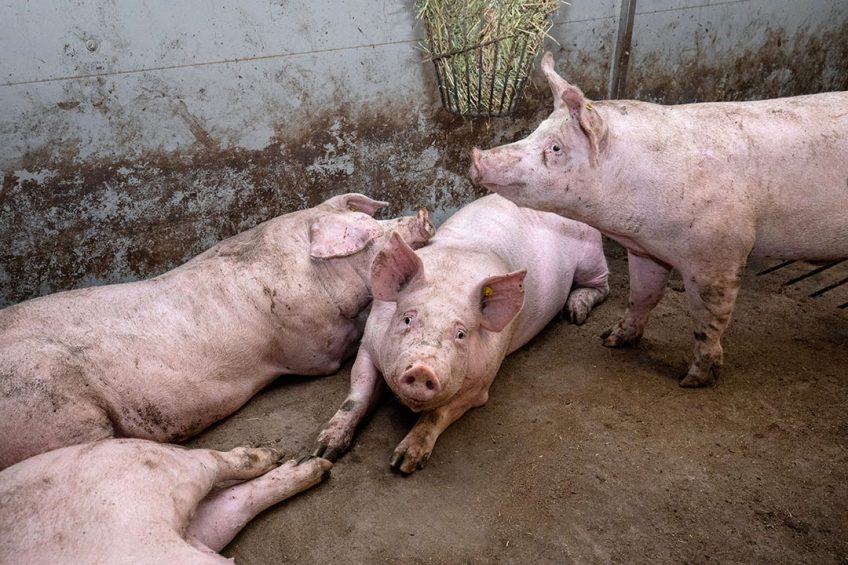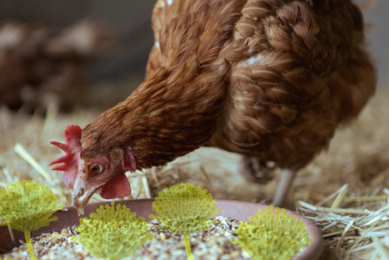DON in finishing pigs: Effect on feed intake

A team of Canadian researchers have delved into the long-term effects of feeding the mycotoxin deoxynivalenol (DON) to finisher pigs – a field of study that has not been given much attention until recently.
In short, the researchers observed a negative effect of DON on growth performance, and stated that that is mainly due to reduced feed intake. They also observed that although the pigs may be capable of adapting to take in DON-contaminated diets, their final body weight will be reduced if fed diets contained more than 1 ppm DON.
A different type of research to DON in pig diets
The study was carried out by scientists attached to the Prairie Swine Centre and the University of Saskatchewan, both located in Saskatoon, SK, Canada, supported by a researcher from Biomin. The scientific article was published recently in the peer-reviewed Journal of Animal Science.
Most research into the effect of deoxynivalenol (DON) is aimed at the effect in young pigs and/or consisted of only short-term studies, the authors wrote. The objective of this study was to determine the effect of long-term exposure to DON-contaminated diets in finisher pigs.
Pig diet trial set-up
The authors described how they group housed 200 pigs of on average 77kg initial weight in a 6-week trial. Pigs were fed:
- a wheat-barley-soybean meal-based control diet with no DON; or
- the basal diet in which clean wheat was replaced by DON-contaminated wheat and wheat screenings to provide a DON content of 1, 3, or 5 ppm.
Every week, the scientists recorded individual body weight and pen feed intake to calculate the average daily gain (ADG), the average daily feed intake (ADFI), and the gain to feed ratio (G:F). They also collected blood on days 0, 14, and 43 and analysed that for indicators of liver and kidney health. Nitrogen balance was conducted immediately following the growth performance period to determine the effect of DON on nutrient utilisation.
Analysis of pig blood and urine samples
The team also analysed blood and urine samples, collected during nitrogen balance, for DON content. Feeding DON reduced the average daily feed intake and the average daily gain from days 0 to 28 compared with the control diet, after which there was no effect of diet on ADFI and ADG.
The G:F was lower in pigs fed the diet with a DON content of 5ppm, compared with all treatments during days 0 to 7; however, no treatment effects on G:F were observed from days 8 to 42. Nitrogen retention was lower in the pigs fed a DON content of 3ppm and 5ppm when compared to those fed 1ppm. The team found that nitrogen retention efficiency was higher in pigs fed 1ppm of DON, compared to those fed higher levels. Protein deposition for pigs fed 1ppm of DON was higher than all treatments.
Recovery of pig performance
The authors wrote that there were no treatment effects on indicators of liver and kidney health. As dietary DON intake increased, the concentration of DON in blood and urine increased. Overall, although there was an initial decrease in ADG and ADFI in pigs receiving diets containing more than 1 ppm DON, pig performance recovered after a period of time, whereas nutrient utilisation continued to be affected after recovery of performance.
That all led them to conclude that the negative effects of DON on growth performance are largely due to reduced feed intake and that their final body weight will be reduced when fed diets contain more than 1 ppm DON.
The scientific paper was written by Michael O. Wellington, Michael A. Bosompem, Raelene Petracek, Daniel A. Columbus, Prairie Swine Centre, Saskatoon, SK, Canada; and Veronika Nagl, Biomin Research Center, Tulln, Austria. Authors Wellington, Bosompem and Columbus are also attached to the University of Saskatchewan, Saskatoon, SK, Canada.











